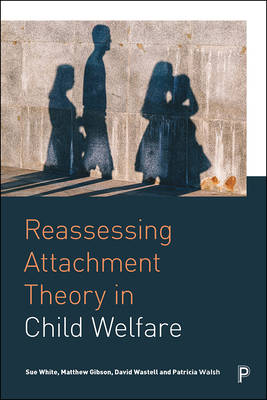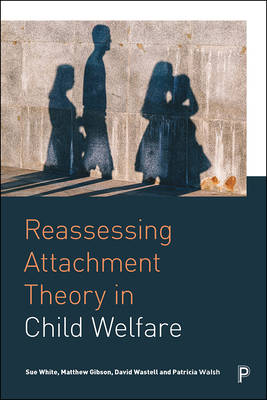
- Afhalen na 1 uur in een winkel met voorraad
- Gratis thuislevering in België vanaf € 30
- Ruim aanbod met 7 miljoen producten
- Afhalen na 1 uur in een winkel met voorraad
- Gratis thuislevering in België vanaf € 30
- Ruim aanbod met 7 miljoen producten
Reassessing Attachment Theory in Child Welfare
Sue White, Matthew Gibson, David Wastell, Patricia WalshOmschrijving
This book offers an analysis and summary of the uses, abuses and limitations of attachment theory in contemporary child welfare practice.
Analysing the primary science and drawing on the authors' original empirical work, the book shows how attachment theory can distort and influence decision-making. It argues that the dominant view of attachment theory may promote a problematic diagnostic mindset, whilst undervaluing the enduring relationships between children and adults.
The book concludes that attachment theory can still play an important role in child welfare practice, but the balance of the research agenda needs a radical shift towards a sophisticated understanding of the realities of human experience to inform ethical practice.
Specificaties
Betrokkenen
- Auteur(s):
- Uitgeverij:
Inhoud
- Aantal bladzijden:
- 152
- Taal:
- Engels
Eigenschappen
- Productcode (EAN):
- 9781447336914
- Verschijningsdatum:
- 4/01/2020
- Uitvoering:
- Hardcover
- Formaat:
- Ongenaaid / garenloos gebonden
- Afmetingen:
- 157 mm x 236 mm
- Gewicht:
- 399 g

Alleen bij Standaard Boekhandel
Beoordelingen
We publiceren alleen reviews die voldoen aan de voorwaarden voor reviews. Bekijk onze voorwaarden voor reviews.









